Developing a website and filling it with content is just the beginning of your journey towards creating a strong online presence. However, if your site isn’t ranking well on search engines or attracting significant traffic, thin content could be the culprit. Thin content has the power to severely undermine your search engine optimization (SEO) efforts, affecting your site’s visibility and credibility.
What is Thin Content?
Thin content refers to web pages that provide users with little to no useful information. This type of content can be characterized by a lack of originality or a failure to address a specific topic in depth. While thin content may imply a low word count, it’s not always true. Many thin content pieces can have a high word count while still offering little value. Search engines, particularly Google, prioritize delivering high-quality, relevant, and comprehensive content to users. After all, users should feel like they learned something valuable from the content they read. Thin content falls below this criteria, missing the mark and leaving users underwhelmed and uninformed.
How Can Thin Content Hurt Your SEO?
Poor User Experience
Thin content often results in a poor user experience since it fails to meet the expectations of users seeking detailed and helpful information. When users find a page lacking substance, they’ll likely leave quickly, increasing the bounce rate and signaling to search engines that your content isn’t valuable.
Lower Rankings
Search engines evaluate the quality of web pages using complex algorithms. Pages with thin content are typically considered low-quality, resulting in poorer search engine rankings. Lower rankings make it more difficult for users to find your content, directly impacting your organic traffic.
Penalties from Search Engines
Google and other search engines actively penalize websites that engage in practices detrimental to user experience, such as publishing thin content. These penalties can range from lower search rankings to complete removal from search engine indexes, significantly affecting your site’s visibility.
Reduced Authority and Trust
Consistently providing thin content can damage your site’s reputation, making it less likely to be seen as an authoritative source. Building and maintaining trust with your audience is crucial for long-term SEO success; thin content can undermine this effort.
Less Opportunity for Backlinks
High-quality content is more likely to be shared and linked to by other websites. Thin content, on the other hand, offers little value that others would want to link to, reducing your chances of earning valuable backlinks that enhance your site’s authority and search rankings.
Thin Content Examples
Automatically Generated Content
Content created through automated processes often lacks the depth and nuance of human-written content, making it a prime example of thin content.
Duplicate Content
Pages that duplicate content from other parts of your site or external sources offer no new value to users and are considered thin content.
Low-Word Count Pages
Search engines typically regard pages with very few words that fail to provide comprehensive information on a topic as thin content.
Doorway Pages
Pages created solely to rank for specific keywords and funnel users to another part of the site without offering substantial information are known as doorway pages (or gateway pages) and are considered thin content.
Scraped Content
Content copied from other websites without adding original value or insight is considered thin content and penalized by search engines.
Identifying Thin Content On Your Site
Conduct a Content Audit
Regularly review your site’s content to identify pages with low word counts, duplicate information, or irrelevant material. It can help you pinpoint thin content that needs improvement.
Analyze User Engagement Metrics
Monitor metrics such as bounce rate, time on page, and exit rate to identify pages not engaging users effectively. High bounce rates and low time on a page can indicate thin content.
Use SEO Tools
Leverage SEO tools like Google Search Console, Ahrefs, or Semrush to identify low-performing pages. These tools can help highlight thin content that’s dragging down your SEO efforts.
Check for Duplicate Content
Use tools like Copyscape to find and address duplicate content on your site. Duplicate content can significantly impact your SEO and should be resolved promptly.
Evaluate Content Relevance
Ensure each page on your site serves a clear purpose and provides value to the user. Irrelevant or outdated content can contribute to a perception of thin content.
What to Do with Thin Content
Revise and Expand
Identify thin content on your site and revise it to include more detailed, useful information. Adding depth and relevance can transform thin content into a valuable resource.
Merge Similar Pages
If you have multiple pages covering similar topics, consider merging them into a single, comprehensive page. It can improve content quality and user experience.
Remove or Redirect
For content that can’t be improved, consider removing it from your site or redirecting it to more relevant, high-quality pages.
Improve Media Use
Enhance your content with relevant images, videos, and infographics. Rich media can make your content more engaging and valuable to users.
Update Regularly
Keep your content up-to-date with the latest information and trends. Regular updates ensure your content remains relevant and useful, preventing it from becoming thin over time.
Let’s Audit Your Content Together!
When it comes to your site’s content, quality always trumps quantity. CadenceSEO is a full-service digital marketing agency and consultancy specializing in developing high-quality content for your business. Our SEO nerds can audit your content to find out which pieces are holding you back. With keyword research, we can help you create valuable content around relevant topics for your target audience. Cadence’s thin content SEO approach can be tailored to fit the unique needs of your enterprise. Ready to boost organic traffic, build credibility, and increase business? Contact Cadence for a free consultation to get started!






